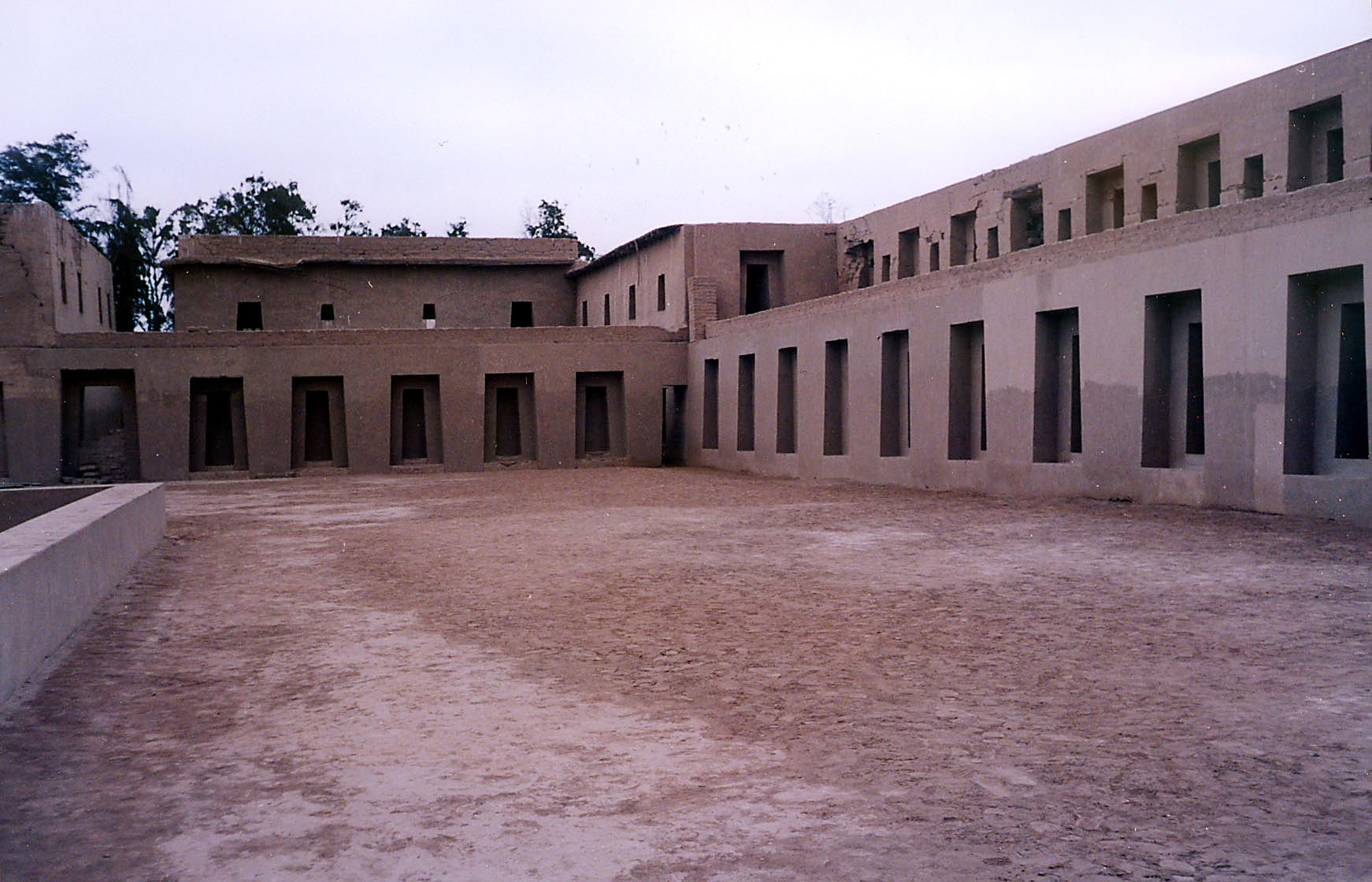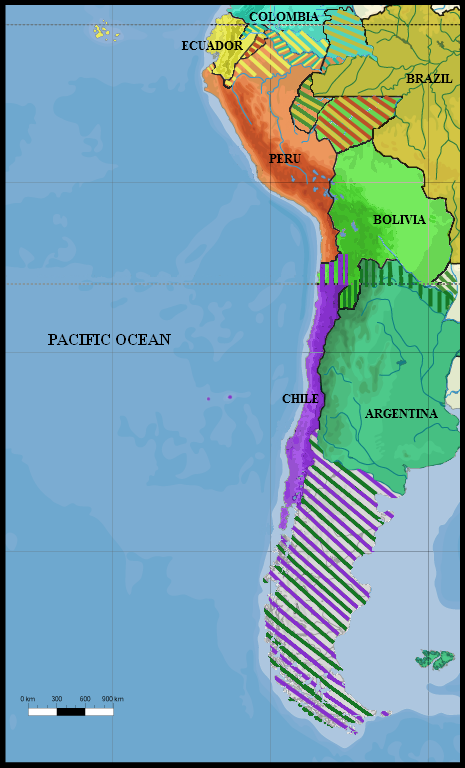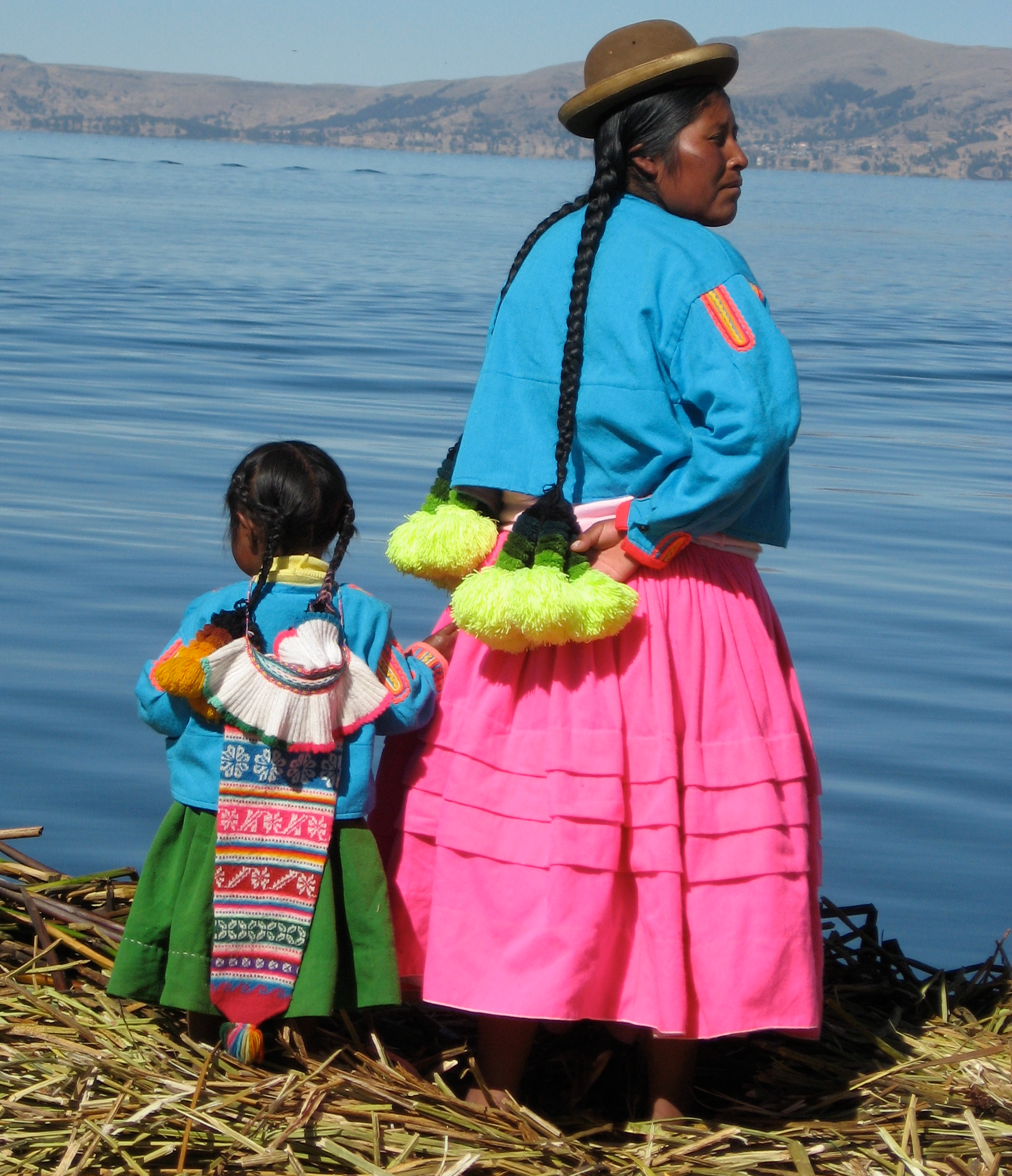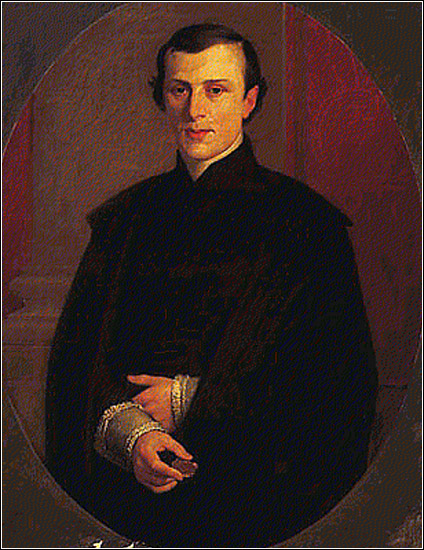|
Manuel González Prada
Jose Manuel de los Reyes González de Prada y Ulloa (Lima, 5 January 1844 – Lima, 22 July 1918) was a Peruvian politician and anarchist, literary critic and director of the National Library of Peru. The first writer to criticize the oligarchy within Peru, he is well remembered as a social critic who helped develop Peruvian intellectual thought in the early twentieth century, as well as the academic style known as modernismo. He was born into the aristocratic class. He was close in spirit to Clorinda Matto de Turner whose first novel, ''Torn from the Nest'' approached political indigenismo, and to Mercedes Cabello de Carbonera, who like González Prada, practiced a positivism sui generis. Early life González Prada was born on 5 January 1844, in Lima to a wealthy, conservative, aristocratic Spanish family. His father was the judge and politician Francisco González de Prada Marrón y Lombrera, who served as Member of the Superior Court of Justice of Lima and Mayor ... [...More Info...] [...Related Items...] OR: [Wikipedia] [Google] [Baidu] |
Lima
Lima ( ; ), founded in 1535 as the Ciudad de los Reyes (, Spanish for "City of Biblical Magi, Kings"), is the capital and largest city of Peru. It is located in the valleys of the Chillón River, Chillón, Rímac River, Rímac and Lurín Rivers, in the desert zone of the central coastal part of the country, overlooking the Pacific Ocean. The city is considered the political, cultural, financial and commercial center of Peru. Due to its geostrategic importance, the Globalization and World Cities Research Network has categorized it as a "beta" tier city. Jurisdictionally, the metropolis extends mainly within the province of Lima and in a smaller portion, to the west, within the Constitutional Province of Callao, where the seaport and the Jorge Chávez Airport are located. Both provinces have regional autonomy since 2002. The 2023 census projection indicates that the city of Lima has an estimated population of 10,092,000 inhabitants, making it the List of cities in the Americas b ... [...More Info...] [...Related Items...] OR: [Wikipedia] [Google] [Baidu] |
Aristocratic
Aristocracy (; ) is a form of government that places power in the hands of a small, privileged ruling class, the aristocrats. Across Europe, the aristocracy exercised immense economic, political, and social influence. In Western Christian countries, the aristocracy was mostly equal with magnates, also known as the titled or higher nobility, however the members of the more numerous social class, the untitled lower nobility ( petty nobility or gentry) were not part of the aristocracy. Classical aristocracy In ancient Greece, the Greeks conceived aristocracy as rule by the best-qualified citizens—and often contrasted it favorably with monarchy, rule by an individual. The term was first used by such ancient Greeks as Aristotle and Plato, who used it to describe a system where only the best of the citizens, chosen through a careful process of selection, would become rulers, and hereditary rule would actually have been forbidden, unless the rulers' children performed best and ... [...More Info...] [...Related Items...] OR: [Wikipedia] [Google] [Baidu] |
Crony Capitalism
Crony capitalism, sometimes also called simply cronyism, is a pejorative term used in political discourse to describe a situation in which businesses profit from a close relationship with state power, either through an anti-competitive regulatory environment, direct government largesse, or corruption. Examples given for crony capitalism include obtainment of permits, government grants, tax breaks, or other undue influence from businesses over the state's deployment of public goods, for example, mining concessions for primary commodities or contracts for public works. In other words, it is used to describe a situation where businesses thrive not as a result of free enterprise, but rather collusion between a business class and the political class. Wealth is then accumulated not merely by making a profit in the market, but through profiteering by rent seeking using this monopoly or oligopoly. Entrepreneurship and innovative practices that seek to reward risk are stifled sin ... [...More Info...] [...Related Items...] OR: [Wikipedia] [Google] [Baidu] |
Chilean Occupation Of Peru
The Chilean occupation of Peru () began on November 2, 1879, with the beginning of the Tarapacá campaign during the War of the Pacific. The Chilean Army successfully defeated the Peruvian Army and occupied the southern Peruvian territories of Tarapacá, Arica and Tacna. By January 1881, the Chilean army had reached Lima, and on January 17 of the same year, the occupation of Lima began. During the occupation, a collaborationist government was established in La Magdalena, known as the Government of La Magdalena (), headed by Francisco García Calderón, that served as the representative government of Peru in order to negotiate the end of the war. After García Calderón's refusal to agree to the territorial transfer of Tarapacá, Arica, and Tacna, he was exiled to Chile along with his wife, where he was pressured again until Lizardo Montero's ''Cry of Montán'', and the establishment of his new government in Cajamarca, known as the Regenerator Government (), which would be r ... [...More Info...] [...Related Items...] OR: [Wikipedia] [Google] [Baidu] |
War Of The Pacific
The War of the Pacific (), also known by War of the Pacific#Etymology, multiple other names, was a war between Chile and a Treaty of Defensive Alliance (Bolivia–Peru), Bolivian–Peruvian alliance from 1879 to 1884. Fought over Atacama Desert border dispute, Chilean claims on Litoral Department, coastal Bolivian territory in the Atacama Desert, the war ended with victory for Chile, which gained a significant amount of resource-rich territory from Peru and Bolivia. The direct cause of the war was a nitrate taxation dispute between Bolivia and Chile, with Peru being drawn in due to its secret alliance with Bolivia. Some historians have pointed to deeper origins of the war, such as the interest of Chile and Peru in the nitrate business, a long-standing rivalry between Chile and Peru for regional hegemony, as well as the political and economical disparities between the stability of Chile and the volatility of Peru and Bolivia. In February 1878, Bolivia increased taxes on the Chile ... [...More Info...] [...Related Items...] OR: [Wikipedia] [Google] [Baidu] |
Chile
Chile, officially the Republic of Chile, is a country in western South America. It is the southernmost country in the world and the closest to Antarctica, stretching along a narrow strip of land between the Andes, Andes Mountains and the Pacific Ocean. Chile had a population of 17.5 million as of the latest census in 2017 and has a territorial area of , sharing borders with Peru to the north, Bolivia to the northeast, Argentina to the east, and the Drake Passage to the south. The country also controls several Pacific islands, including Juan Fernández Islands, Juan Fernández, Isla Salas y Gómez, Desventuradas Islands, Desventuradas, and Easter Island, and claims about of Antarctica as the Chilean Antarctic Territory. The capital and largest city of Chile is Santiago, and the national language is Spanish language, Spanish. Conquest of Chile, Spain conquered and colonized the region in the mid-16th century, replacing Incas in Central Chile, Inca rule; however, they Arauco War ... [...More Info...] [...Related Items...] OR: [Wikipedia] [Google] [Baidu] |
Hacienda
A ''hacienda'' ( or ; or ) is an estate (or '' finca''), similar to a Roman '' latifundium'', in Spain and the former Spanish Empire. With origins in Andalusia, ''haciendas'' were variously plantations (perhaps including animals or orchards), mines or factories, with many ''haciendas'' combining these activities. The word is derived from Spanish ''hacer'' (to make, from Latin ''facere'') and ''haciendo'' (making), referring to productive business enterprises. The term ''hacienda'' is imprecise, but usually refers to landed estates of significant size, while smaller holdings were termed ''estancias'' or ''ranchos''. All colonial ''haciendas'' were owned almost exclusively by Spaniards and criollos, or rarely by mixed-race individuals. In Argentina, the term ''estancia'' is used for large estates that in Mexico would be termed ''haciendas''. In recent decades, the term has been used in the United States for an architectural style associated with the traditional estate manor ... [...More Info...] [...Related Items...] OR: [Wikipedia] [Google] [Baidu] |
Centralismo (Peru)
Centralism () is the common act of the social elite in Peru accumulating, or centralizing, wealth and development along the coast of the Pacific Ocean, particularly in the capital city of Lima. This practice has occurred throughout Peru's history and has resulted with large levels of economic inequality, political alienation and other disparities in rural regions, with Lima acquiring the majority of socioeconomic benefits in the nation. History The Viceroyalty of Peru was the most centralized colony of the Spanish Empire, with administration being limited outside of Lima, especially throughout the Andes. Following the independence of Peru from the Spanish Empire, the economic elite focused their power on the coastal regions while the rural provinces were governed by existing serfdom practices by '' hacienda'' landowners. This centralization mainly benefited the criollo elites. While founding the nation, elites worked towards cultural hegemonization and homogenization, enf ... [...More Info...] [...Related Items...] OR: [Wikipedia] [Google] [Baidu] |
Indigenous Peoples Of Peru
The Indigenous peoples of Peru or Indigenous Peruvians comprise a large number of ethnic groups who inhabit territory in present-day Peru. Indigenous cultures developed here for thousands of years before the arrival of the Spanish in 1532. In 2017, 5,972,606 Peruvians identified themselves as indigenous peoples and formed about 25.75% of the total population of Peru. At the time of the Spanish arrival, the indigenous peoples of the rain forest of the Amazon basin to the east of the Andes were mostly semi-nomadic tribes; they subsisted on hunting, fishing, gathering and slash and burn agriculture. Those peoples living in the Andes and to the west were dominated by the Inca Empire, who had a complex, hierarchical civilization. It developed many cities, building major temples and monuments with techniques of highly skilled stonemasonry. Many of the estimated 2000 nations and tribes present in 1500 died out as a consequence of the expansion and consolidation of the Inca Empire ... [...More Info...] [...Related Items...] OR: [Wikipedia] [Google] [Baidu] |
Cerro De Pasco
Cerro de Pasco is a city in central Peru, located at the top of the Andean Mountains. It is the capital of both the Pasco Province and the Department of Pasco, and an important mining center of silver, copper, zinc and lead. At an elevation of , it is one of the highest cities in the world, and with a population of 58,899, it is the highest or the second highest city with over 50,000 inhabitants. The elevation reaches up to in the Yanacancha area. The city has a very intense cold climate and it is connected by road and by rail (via Ferrocarril Central Andino) to the capital Lima, away. Its urban area is formed by the districts of Chaupimarca, Yanacancha and Simón Bolívar. Mining center Originally known as Villa de Pasco, the settlement's origins were as a mining town dating from 1578. Cerro de Pasco became one of the world's richest silver producing areas after silver was discovered there in 1630. It is still an active mining center. The Spanish mined the rich Cerro ... [...More Info...] [...Related Items...] OR: [Wikipedia] [Google] [Baidu] |
Conservatism In Peru
Conservatism in Peru () is a broad system of Conservatism, conservative political beliefs in Peru, characterized by support for Catholic Church, Catholic values, Social, social stability and social order. Peruvian conservatism has encompassed a wide range of theories and ideologies in the last two hundred years. In contrast with nearly nations like Conservatism in Colombia, Colombia or Chile, Peru has not developed a concrete conservative political tradition. Peru is considered to be one of the most conservative nations in Latin America, especially with social conservatism. Right-wing groups in Peru typically espouse authoritarian beliefs. Historian Gastón Antonio Zapata Velasco, Antonio Zapata describes Peru as a "right-wing country"; the only left-wing government in contemporary history until the election of Pedro Castillo in 2021 was that of Juan Velasco Alvarado (1968–1975), author of an agrarian reform and the nationalization of strategic sectors. Social conservatism is al ... [...More Info...] [...Related Items...] OR: [Wikipedia] [Google] [Baidu] |






